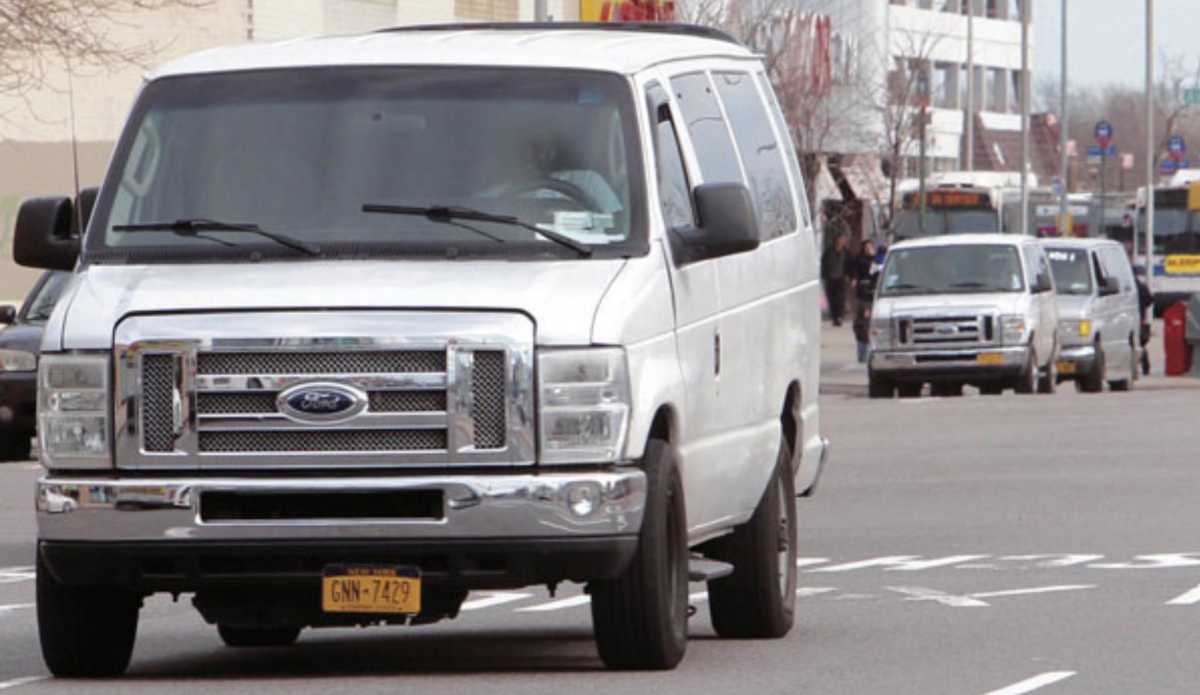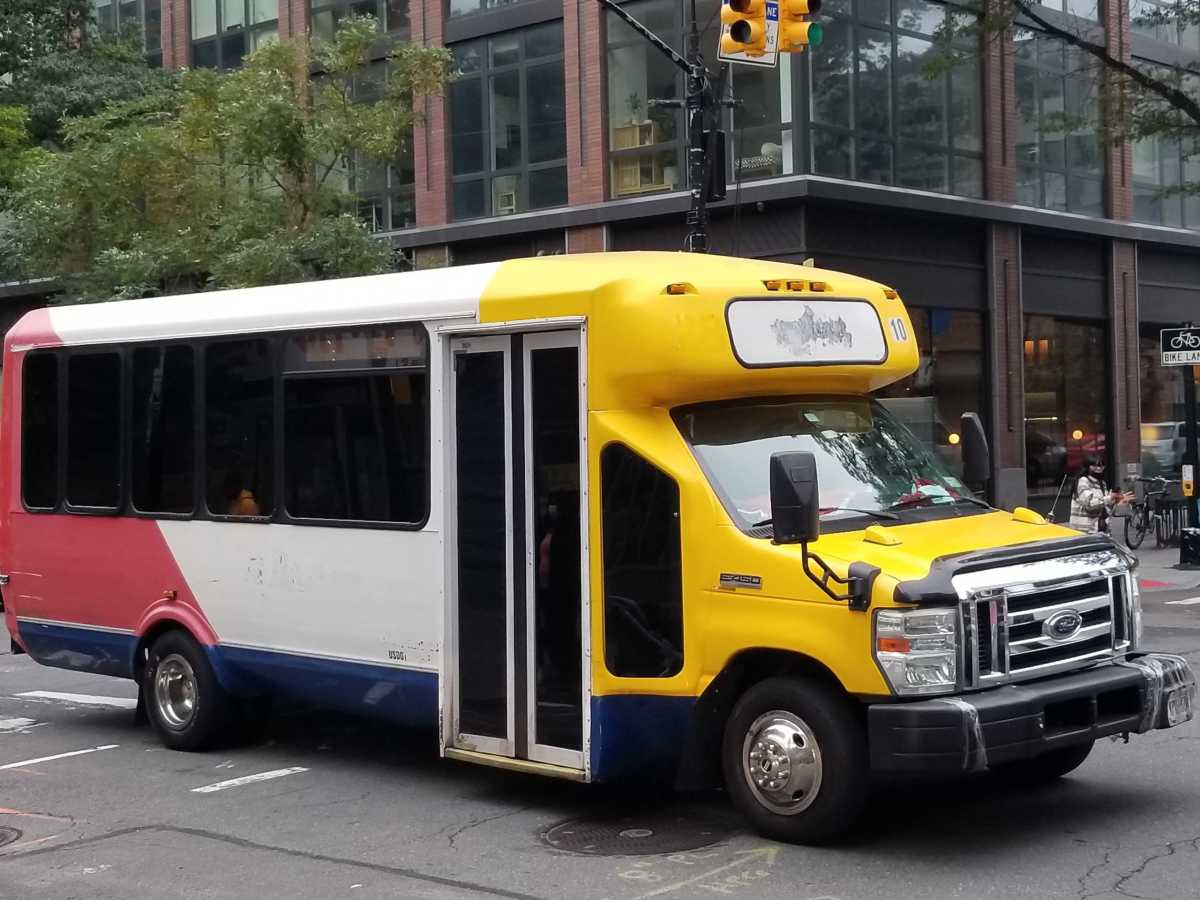
Licensed NYC commuter vans help New Yorkers move around the city, but the industry is experiencing challenges — including a significant decline in available vehicles over the previous decade, NYC Council members said on Monday.
Steve Solomonson/Brooklyn Paper archive
Licensed NYC commuter vans help New Yorkers move around the city, but the industry is experiencing challenges — including a significant decline in available vehicles over the previous decade, NYC Council members said on Monday.
Community-based commuter (dollar) vans licensed with the Taxi and Limousine Commission (TLC) typically provide rides for residents in areas underserved by public transportation. As of 2024, there were 12 authorized commuter van bases, which collectively operated 38 licensed vehicles with 59 licensed drivers, according to the city council.
But that number is dropping, causing concern among the council’s Transportation and Infrastructure Committee. During a Sept. 15 oversight hearing on transportation licensing, Queens Council Member Selvena Brooks-Powers described the Taxi & Limousine Commission’s (TLC) commuter van program as an “overlooked part” of the city’s transportation network. TLC-licensed commuter van rides are arranged in advance and can carry up to 20 passengers in one vehicle.
The council member asked panel speakers at the meeting, including representatives from the TLC and NYC Department of Transportation, the status of the licensed commuter vans in the city.
“Many New Yorkers choose them for their reliability and ability to bridge gaps in existing transit systems,” Brooks-Powers said. “However, the licensed commuter van industry has struggled since the pandemic, with over 500 licensed vans in 2014 down to less than 40 a decade later.”
 A dollar van on Livingston Street in Downtown Brooklyn in October 2022.Photo by Ben Brachfeld
A dollar van on Livingston Street in Downtown Brooklyn in October 2022.Photo by Ben Brachfeld
She acknowledged that illegal vans compete with licensed vans to pick up passengers for a fee and undermine the city’s public transit system by picking up passengers at bus stops.
“Many of these vans aren’t simply unlicensed; they ignore other safety regulations,” the council member said.
She continued that illegal vans often violate safety rules by being operated by unlicensed drivers, having inadequate insurance coverage, and not having government-required inspections.
Legislation to support the industry
The council member introduced two bills: a periodic study of the commuter van industry and an enforcement checklist aimed at cracking down on illegal vehicles, allowing maximum penalties to be applied when they break multiple rules at once.
The bills are the result of working group members’ efforts to craft legislation to support the licensed commuter van industry.
“Intros. 1346 and 1347 are the result of numerous meetings I’ve convened with our commuter van working group, which includes commuter van operators, TLC, Department of Transportation (DOT), NYPD, taxi stakeholders and transit unions.”
During the meeting, TLC Commissioner David Do acknowledged the challenges facing licensed commuter vans in NYC.
“The industry continues its slow and steady recovery,” Do said. “There are now 51 licensed vans compared to 38 at the beginning of the year. This progress is partially thanks to the Empire State Development’s Commuter Van Stabilization program.”
He also assured the council that the licensed vans are operating safely. Of the 66 safety violations given to commuter vans in 2024, only seven were issued to licensed vehicles, he said.
According to Do, TLC issued 113 summonses to unlicensed commuter vans in 2025, up from 59 in 2024. However, he said the agency opposes the Intro. 1347 checklist enforcement bill.
“This bill would make enforcement against unlicensed vans more difficult and likely impede our future progress,” Do said. “Our trained officers already check for all applicable violations. Requiring them to go through a lengthy physical checklist during a stop will add unnecessary time and steps as more illegal vans pass by.”
However, the commissioner said a study of the commuter van industry, as proposed in Intro. 1346, could be helpful for making policy and evaluating the sector.
Meanwhile, Eric Beaton, deputy commissioner for transportation planning and management at the DOT, the agency tasked with conducting the study, agreed that further studies on the industry could benefit future policy.
“A new study might have some modest benefits that assist TLC in making policies, Beaton said.
Both bills are currently laid over in the Transportation and Infrastructure Committee.